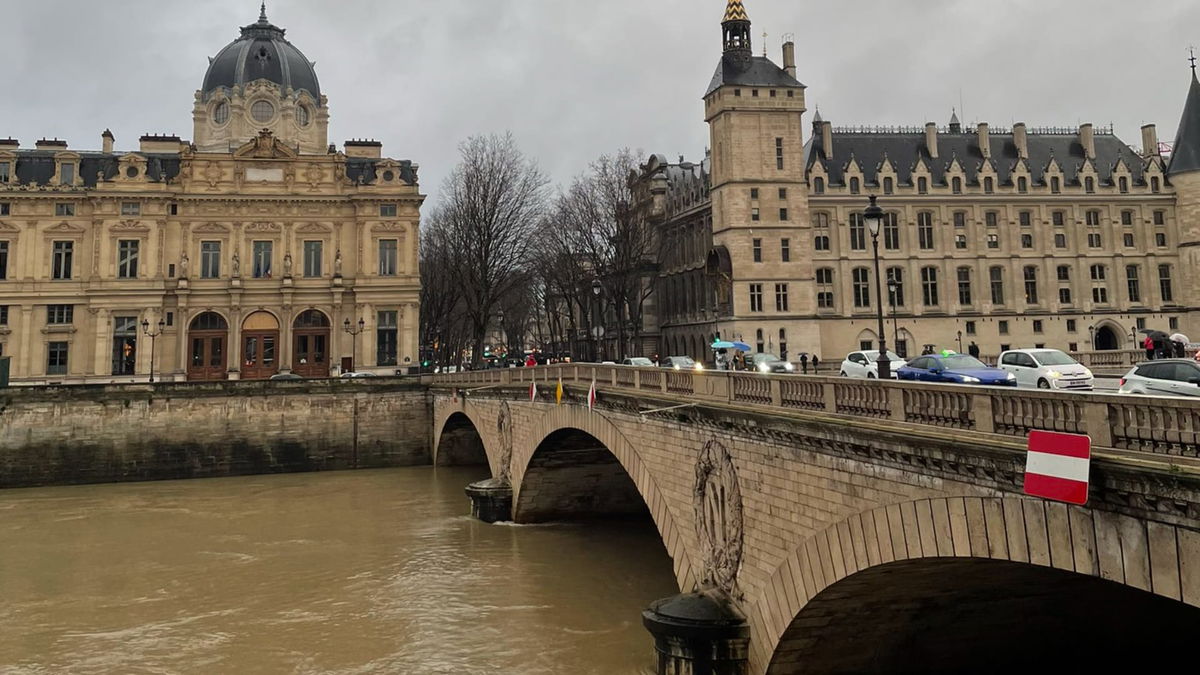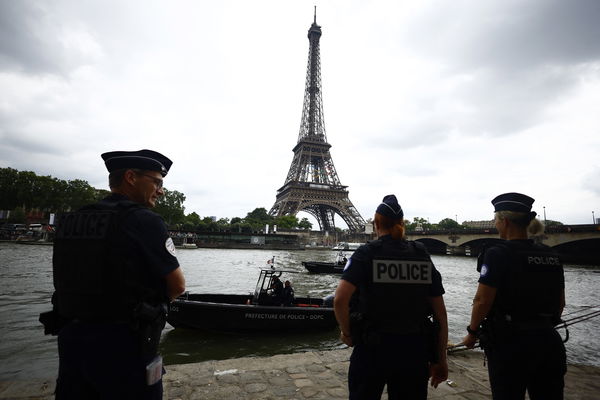

The persistent pollution of the Seine River casts a dark shadow over the Paris Olympics. Despite bold assurances from organizers that the water quality would improve, the river’s contamination levels remain alarmingly high, culminating in the postponement of the men’s triathlon originally slated for Tuesday. The event was only able to proceed on July 31 after rigorous testing finally showed a slight improvement in conditions.
Watch What’s Trending Now!
As the challenges mount, EssentiallySports is at the heart of the action, providing you with up-to-the-minute coverage. Our dedicated team in Paris is closely monitoring every development. At a recent press conference, Paris Deputy Mayor Pierre Rabadan addressed the ongoing crisis, his words offering a sliver of hope amid the turbulence. His comments underscore the resilience and determination of the city, fighting against the odds to deliver a memorable Olympic Games.
ADVERTISEMENT
How the Deputy Mayor contributed to addressing water quality concerns
Deputy Mayor Pierre Rabadan addressed the concerns surrounding water quality issues impacting the events. Rabadan discussed the measures taken to manage water quality, noting that “the quality of water but all the works we made normally reduce or know all the impacts on the quality of water. It’s dependent on the quantity of water.” Leading up to the Games, the water quality in the Seine became a significant issue as organizers scrambled to prepare the river for its high-profile role.
ADVERTISEMENT
For months, French authorities have been testing river samples for harmful bacteria like E. coli and Enterococci, which are indicators of contamination. Elevated levels of E. coli pose health risks to swimmers, as heavy rainfall can wash runoff and sewage into the river, causing the Seine to fail quality tests.
ADVERTISEMENT

Deputy Mayor Pierre Rabadan elaborated on the contingency plan for events like the swimming marathon, saying, “We had a plan of the day of contingency and for the swimming marathon it’s exactly the same way.” Rabadan indicated that adjustments could be made based on rainfall, adding, “We’re going to see what’s happened as a power of rain we will have in the couple of daycomings. But if we have a problem we have a contingency day to go to another date to be able to maintain the competition in the real sense.”
ADVERTISEMENT
Additional swimming events scheduled in the Seine include the triathlon mixed relay on Monday, and the women’s and men’s marathon swimming events on August 8 and 9. Should concerns about water quality persist, marathon swimming may be moved to the Vaires-sur-Marne Nautical Stadium, located in the greater Paris region. This venue, which already hosts rowing and canoeing competitions, can accommodate up to 15,000 spectators.
ADVERTISEMENT

With rain also forecast for later this week, adjustments will be made based on weather conditions, including the possibility of rescheduling if necessary to ensure the competition’s integrity. Meanwhile, Olympics organizers are hoping that sunny, hot weather will help improve the water quality of the Seine River. Despite these preparations, Pierre Rabadan admitted uncertainty about the weather, stating, “I’m not able to say today it will rain that quantity at this period and we knew especially with the opening ceremony that the weather is changing a lot.”
ADVERTISEMENT
Reflecting on the opening ceremony’s unpredictable weather, he noted, “It was not what we expect. But because of all the works we did to keep the good quality of water and stop having a rejection in the river, that’s why we were able to do the competition today and we’ll have exactly the same process from the swimming marathon and the mid-triathlon.”
However, rainfall poses a significant challenge, particularly for the Seine River. Heavy rain can lead to runoff from agricultural fields, urban areas, and livestock operations, introducing fecal contaminants into the river. It can also overwhelm sewage systems, resulting in overflows of untreated sewage rich in E. coli. Increased flow rates can stir up sediments and contaminants from the riverbed, resuspending E. coli, while rainwater infiltration can introduce bacteria into groundwater that eventually discharges into the Seine, exacerbating contamination.
ADVERTISEMENT
How can Seine’s affect athletes ahead of the Paris Olympics games?
For nearly a century, swimming in the Seine has been a no-go due to its poor water quality, with only rare exceptions for special events. Paris decided to turn the tide by investing $1.5 billion to revamp its sewage and water treatment systems, including the construction of the Austerlitz Basin, a colossal underground storage facility designed to handle wastewater overflow. Even before the Olympics approached, everything seemed to be coming up roses. Paris Mayor Anne Hidalgo even took a symbolic plunge into the Seine on July 17 to showcase the river’s newfound safety. However, trouble is brewing again. But how might this hiccup affect athletes, and what can be done to keep these issues at bay?
ADVERTISEMENT
To ensure safe conditions for Olympic events, regular water testing will be conducted, focusing on bacteria such as total coliforms and pathogens that could cause illness if present in high concentrations. While coliform bacteria themselves are generally harmless, their presence can indicate the potential for dangerous bacteria like E. coli, which can lead to severe gastrointestinal issues, skin infections, and other health complications.
Nicole Iovine, chief epidemiologist at UF Health, cautions that elevated coliform levels could suggest a greater risk of pathogenic bacteria, making the water unsafe. Additional concerns include parasites, viruses, and rodent-borne pathogens, which may affect athletes’ performance and health, especially those with pre-existing conditions. Despite significant improvements, the Seine’s history of pollution continues to prompt caution and rigorous testing.
ADVERTISEMENT
ADVERTISEMENT
ADVERTISEMENT